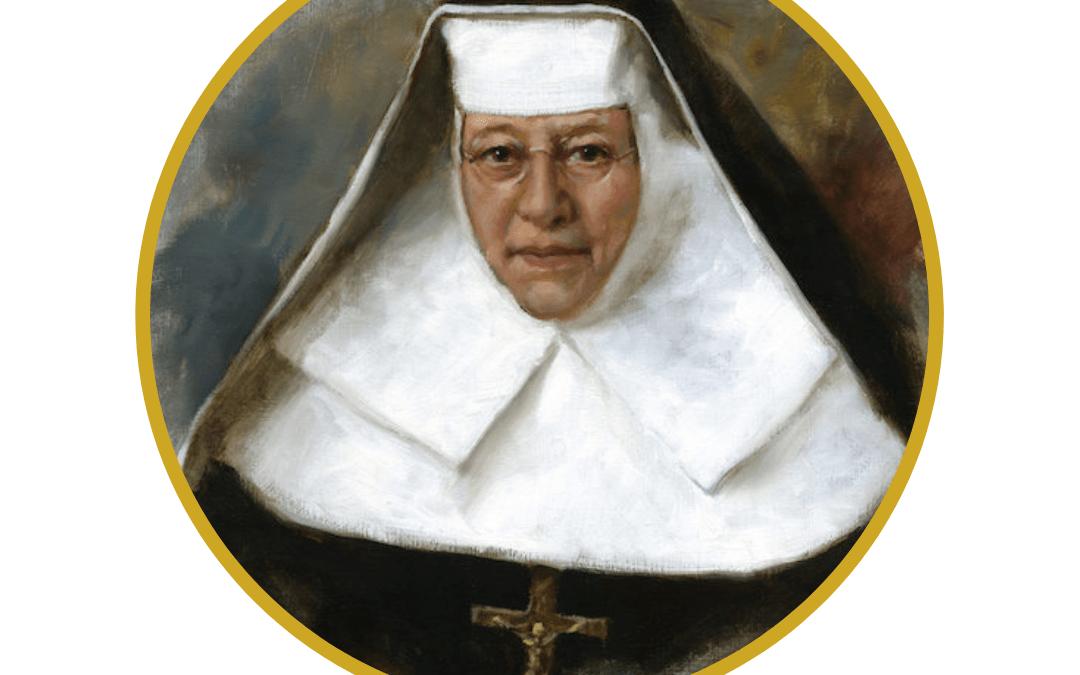3 March: Feast of Saint Katharine Drexel, the second American-born saint to be canonized. She was born Catherine Marie Drexel in 1858 to a wealthy Philadelphia banker. Her mother passed away five weeks after her birth. Her father remarried and had another daughter. Devout Catholics, they instilled in their children the idea that wealth was meant to be shared. They regularly gave food, clothing and rent assistance to the poor. Catherine’s life changed when her beloved stepmother died after suffering from cancer. Two years later, her father also died. Catherine’s father left the largest fortune recorded in Philadelphia at that time. His daughters were left with a large trust fund. The rest was donated to charity. In 1885, Catherine and her sisters traveled to the Western states, visiting Indian reservations. Seeing dire poverty, Catherine used her money to build schools, supply food and clothing, and provide salaries for teachers on these reservations. In 1887 she established her first boarding school for Indians in Santa Fe. That same year, the Drexel sisters were given a private audience with Pope Leo XIII. They asked him for missionaries to help the Indians. The Pope suggested that Catherine herself become a missionary. Catherine decided she would give herself and her inheritance to God through service to both Native and African Americans. She wrote, “The feast of St. Joseph brought me the grace to give the remainder of my life to the Indians and the Colored.” In 1891, she made her vows as a religious. Taking the name Mother Katharine, she established the Sisters of the Blessed Sacrament for Indians and Colored. Founding and staffing schools for both Native and African Americans throughout the country was their priority. In 1894, she purchased 1,600 acres in Virginia and built a boarding school for black girls. Nearby was St. Emma’s school for black boys built by her sister, Louise. Soon after, a school for Pueblo children was established in New Mexico. In 1915, Mother Katharine purchased a vacant campus in New Orleans and reopened it as Xavier College (now Xavier University). Xavier was the first and only Catholic college for African-Americans and trained teachers to educate black children. Mother Katharine lived the rest of her life with extreme frugality, wearing a single pair of shoes for ten years and using her pencils down to the erasers. From age of 33 until her death, she dedicated her life and personal fortune of $20 million to her work. Katharine had a severe heart attack at 77 that forced her to retire. She spent the rest of her life in quiet and intense prayer. She died on March 3, 1955 at the age of 96. At the time of her death, 501 members of her order were teaching in 63 schools and had missions in 21 states. Katharine is remembered for her love of the Eucharist and her desire for unity of all peoples. She believed all should have access to a quality education. St. Katharine was beatified in 1988 and canonized on October 1, 2000 by Pope John Paul II. St. Katharine Drexel is the patron saint of racial justice and philanthropists.
Ideas for celebrating in your home:
- St. Katharine dedicated her life to helping the Native and African American poor. Her feast is a good time to try a Native American recipe. How about Hopi Corn Stew with cornbread? Or Buffalo Baked Ziti? Or, try making Three Sisters Soup (Native tribes relied on the “three sisters” of corn, squash, beans to survive harsh winters).
- St. Katharine had a great love for the Eucharist, the center and source of her activity. Make a family visit to adoration of the Blessed Sacrament today.
- St. Katharine grew up in a wealthy home that always shared with others. In her memory, could you give of your time, talent, or material goods to help those in need? Contact St. Vincent de Paul, Triune Mercy Center, or other such charitable organization to ask how your family can help.
- Learn more about St. Katharine Drexel and the order she founded, Sisters of the Blessed Sacrament, at katharinedrexel.org.
- Take a virtual tour of the shrine of St. Katharine Drexel on FORMED: click here for link.
(sources: catholic.org; katharinedrexel.org; catholicculture.org)
